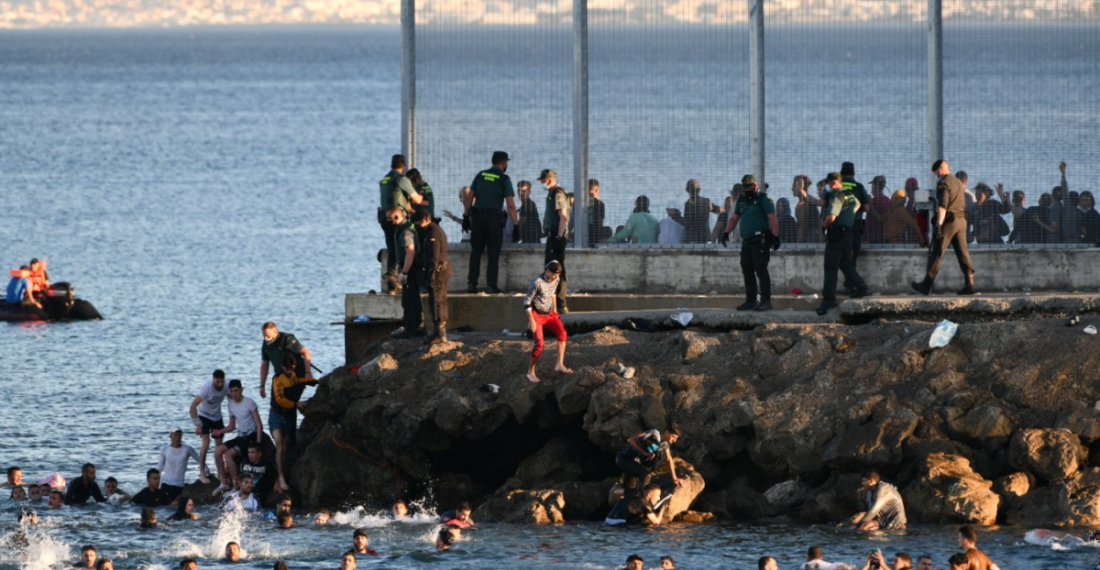The town of Ceuta, together with its sister town Mellila a bit further down the Mediterranean coast, is an anachronism. Whilst situated on the African continent the towns are recognised as being fully part of Spain – a colonial hang-over that has taken a life of its own. The enclaves were once considered of strategic importance for the defence of Spain. They have now become springboards for illegal migration into Europe.
Yesterday, 5,000 arrived, taking the authorities by surprise. They say the migrants – who include hundreds of minors – either swam around the border fences that jut out into the sea or walked across at low tide.
They are said to be mostly from Morocco. Spanish media says Moroccan border guards did not stop them.
Early reports on Monday said more than 100 people had come overnight around the coast at Benzu on the north side of Ceuta, followed by some at Tarajal on the south side.
Most were said to be young men, but the group also included children and several families. Many had used inflatable rings and rubber dinghies, authorities added.
They were taken to a migrant reception centre. But as more turned up later in the day, officials said the number had risen to 5,000 - an unprecedented figure which they warned could rise further.
The Spanish foreign minister, Arancha González Laya, said some migrants were already being sent back to Morocco.
According to the BBC, last month more than 100 migrants arrived in Tarajal. Most of them were sent back, except about 30 minors whose ages were confirmed by medical tests.
The arrivals come at a tense time in Morocco's relations with Spain. Morocco is angry that the leader of the Polisario Front, Brahim Ghali, has been receiving treatment in a Spanish hospital.
Read more on commonspace.eu: Polisario leader summoned by Spanish Court
Polisario has been fighting for the independence of Western Sahara for decades. The territory was occupied by Spain until 1975, when Morocco took control of most of it.
The EU border force, Frontex, reports that illegal migration to Spain's Canary Islands – off the Moroccan coast – has surged this year. In most cases, sub-Saharan Africans make perilous journeys in rickety boats and drowning is common.
However, the overall numbers of undocumented migrants reaching Europe so far this year remain far below the levels seen in 2015-16.
Source: commonspace.eu with agencies
Photo: Migrants swimming to Ceuta on 17 May 2021.







